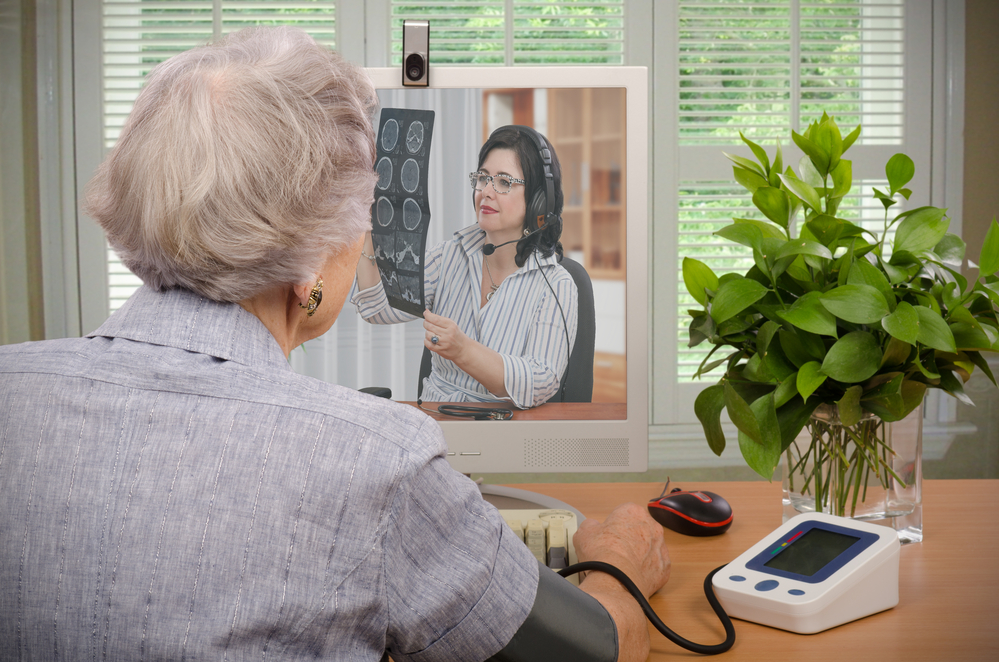The growing recognition of proper nutrition among American people has led to an increase in the practice of dietetics as well as the number of people earning qualifications in this field. This is a good thing. The Academy of Nutrition and Dietetics states that the foods we eat play a significant role in our health, meaning that if more people had access to dietitians, it would have a major effect on their lives.
Technology has made it simple for people to acquire a certification as a dietician through online education. Especially for busy professionals and those looking to take a different career path, who don’t want to squander precious hours stuck in traffic.
The Importance of Credentials
When considering career and academic pathways for being a dietitian, it is essential to comprehend not only the preparation that is necessary but also the authorization and endorsement needed to practice with the title of dietitian.
Dietitians serve an indispensable purpose in administering nutritional care in order to stop or regulate illnesses such as Type 2 diabetes. Dietitians possess specialized knowledge and the capability to develop tailored plans for each individual, taking into account their individual requirements, capabilities, and resources.
Despite this, there are some people claiming to be dietitians who lack the correct educational background and expertise. Some individuals are taking advantage of this newly identified marketplace, according to the Academy. Many people don’t have enough recognized qualifications to be able to offer these services, and it can become hard to tell the difference between a nutritionist and a dietitian. To gain such qualifications, potential practitioners must have an accredited education, relevant experience, and pass an exam to demonstrate their skills.
Dietitian Credentials – RD vs. RDN
What are the differences between the terms “Dietitian,” “RD,” and “RDN,” and who is allowed to use them?
In order to gain your license or credentials and be able to legally call yourself a certain title, the majority of states need you to fit the registration requirements set by the Academy’s Commission on Dietetic Registration in addition to meeting any further state regulations.
Remember that these documents are not the same as a voluntary credential provided by a specialized committee or individual organization, which demonstrates a more extensive focus on a particular topic, but we will discuss that in more detail in the future.
Dietitian
An individual educated in the field of nourishment and dietetics (food science). Lots of individuals who don’t possess the necessary qualifications to be a registered dietitian will settle for a profession as a dietitian technician.
Registered Dietitian (RD)
A dietitian who has passed the national registration exam.
Registered Dietitian Nutritionist (RDN)
RD prefers to also highlight their nutritional expertise. Before, the only way to certify yourself as a Registered Dietitian was the RD badge. However, the CDR has now introduced the RDN badge to signify that an individual has a broader knowledge of nutrition and its health benefits. This title is not a requirement, but it carries the same conditions as being an RD.
A reminder: the acronyms RD and RDN refer to exactly the same thing. It is true that people who have registered as a dietitian must also be considered as a nutritionist, but the opposite is not always true; it is possible to be a nutritionist without having registered to become a dietitian.
The Role of State Regulators in Dietitian Licensure
This is where state regulations come in. In order to protect the well-being of consumers, a majority of states in the United States have implemented rules related to the dietetic industry.
Legislation requiring individuals to demonstrate their knowledge, aptitude and compliance with set requirements can provide a distinct route to acquiring the training and authorisation needed to practise in the individual’s state.
The Academy of Nutrition and Dietetics confirms that customers would be sure that they are safeguarded from incorrect dietary guidance or actions that could end up leading to poor or hazardous wellbeing results, as well as unneeded, costly items and services.
Licensing, Certification, and Title Protection
Before diving into the regulations of every state, it’s essential to become cognizant of the varying degrees of certification states provide—and, in reality, to really practice as a dietitian, you must fulfill qualifications that are accepted by the professional community.
Dietitian License
Examine regional credentials organizations to guarantee that the school is accepted. Verify that the academic degree program at the institute has obtained accreditation from the ACEND for Registered Dietitian Nutritionists.
Dietitian Certification
Much like attaining a license, obtaining state certification necessitates certain educational qualifications as well as practical experience. It also legally allows one to use the corresponding job title and in turn holds the individual accountable to the expectations and morality inherent in the occupation. Nevertheless, “practice exclusivity” is not an element of the usual licensing regulations.
In areas where certification for dietitians is provided in lieu of licensing, individuals who have not obtained certification can still practice dietetics despite the lack of schooling or experience. As long as they do not claim any specific status supported by the board (for example, registered dietitian) or imply they have been officially checked or approved.
Therefore, consumers should be wary of getting services from unqualified people and, if they are uncertain, should check the status of a professional with the relevant board.
Dietitian Title Protection
It is perplexing to see that the weakest form of regulation established is known as title protection. This law guarantees that regardless of any other factors, only those who nevertheless comply with the criteria can refer to themselves as dietitians. Nevertheless, the state doesn’t dictate any guidelines or models of ethical practices, even when it applies to those who have earned this title. It is possible for someone to engage in the practice of dietetics without requiring any specific legal qualifications. This is due to the principle of title protection.
State-by-State Dietitian Requirements
Look up your state to find out the type of credentials it provides, what standards are necessary to get certified, and how much extra study is necessary to keep the permit or certification valid.
By the year 2022, all states in the U.S. (including Puerto Rico and Washington, D.C.) will impose the need for dietitians to be certified or licensed. The individual states grant a particular designation – usually a certified dietitian or a licensed dietitian – to those who meet every stipulation. In some states, there are separate credentials for dietitians and nutritionists, while others award a single license that allows a person to be called a dietitian or nutritionist, or both.
As part of the rules for licensure or certification, most states necessitate the satisfactory completion of the basic benchmarks for CDR needs.
In places that solely provide certification, individuals who are not certified can still practice dietetics as long as they do not refer to themselves with any officially recognized label.
Rather than having specific credentials requirements, some states take into account the standards of the Certified Nutrition Specialist (CNS) credential from the American Nutrition Association. To become a Certified Nurse Specialist, you must hold a minimum of a master’s degree and successfully pass an examination. However, only 1,000 hours of supervised practice is needed. Remember to not use the label of a licensed nutrition specialist.
How to Become a Registered Dietitian (RD)
If you’re enthusiastic about pursuing a career as a certified dietician, these are four measures you must take.
Earn an Accredited Bachelor’s or Master’s Degree
The initial requirement to be a registered dietitian requires getting a degree in nutritions and gaining a confirmation statement from an Accreditation Council for Education in Nutrition and Dietetics (ACEND) approved program. This is required to sit for the CDR exam. At present, a person can secure their RD title if they have a bachelor’s or master’s degree from a ACEND-endorsed university, but that will no longer be true starting in 2024. By January 1, 2024, those wishing to take the CDR examExternal link:open_in_new will need to have attained at least a graduate-level degree rather than a bachelor’s degree.
If you finish your studies by the year 2024, you can go onto further your education with a bachelor’s degree in any of the following programs: clinical nutrition, dietetics, public health nutrition, or foods and nutrition. Your education will center on utilizing evidence-based nutrition, therapeutic nutrition, nutrition in the public domain, put into practice dietary rules, and the management of foodservice operations.
If you are interested in continuing your education by attaining a master’s degree, you could look into a master’s program in nutrition accredited by ACEND or a coordinated degree program such as an MPH/RD master’s. It’s important that you provide any pertinent information about your background in nutrition and any past work experience when you submit your program application. Doing this may help you progress towards becoming an RD.
Complete a Dietetic Internship
After completing a nutrition program, in order to become a registered dietician, one must gain practical clinical practice through an internship. People who have achieved a master’s degree, not just those with a bachelor’s degree, are included in this statement.
You have the option of completing a standard Dietetic Internship (DI)External link:open_in_new, a Coordinated Program (CP), or an Individualized Supervised Practice Pathway (ISPP). You must accomplish 1,200 hours of a program guided by a certified expert regardless of what the program is.
Dietitian Internship
It is necessary to use the online Dietetic Internship Centralized Application Services (DICAS) in order to submit an application for a Dietetic Internship as per the ACEND. Many internships utilize this method, which enables you to acquire appropriate DI and CP jobs anywhere in the country. If you have a desire to take part in an ISPP, you should explore other options.
Internships range in duration from eight to 24 months. You may work on a part- or full-time basis. If you cannot participate in a usual internship physically, there are web-based and distance internship possibilities available.
You can select an internship that aligns with your interests and objectives related to your career. Several courses emphasize clinical nutrition, medical nutrition therapy, community nutrition, pediatric nutrition, geriatric nutrition, food systems directing, public health nutrition awareness, and other topics.
Coordinated Programs
Prospective Registered Dietitians typically obtain a degree before going on to complete an internship program. You could also look intoACEND’s Coordinated ProgramExternal link:open_in_new that provides the necessary classes in Dietetics (DPD) and monitored practical experience. You can complete the necessary schooling and training for taking the test through a certified Coordinated Program.
A Coordinated Program is not necessarily required to combine Dietetic Internship experience with graduate studies, however a Coordinated Program can be arranged to be part of a graduate degree.
Individualized Supervised Practice Pathways (ISPP)
An alternative would be to pursue an ISPP which is designed to facilitate monitored run-throughs of ACEND qualified dietetic courses. There are two various kinds of SIPPs, one intended for individuals who have received a Didactic Program in Dietetics degree and one for doctoral degrees which were attained prior to an external link.
- ISPP for Didactic Program in Dietetics Graduates (DPD)
This choice is available to those who have graduated from an accredited dietetics program but did not secure a spot in a dietetic internship program, and holds a DPD verification statement. The DPD offers the requisite classes in dietetics that can earn you either a Bachelor’s or Masters degree. Verified graduates of the program, approved by the program director, may submit an application for either a Dietetic Internship or an ISPP so as to get the required mentored experience required to be allowed to take the RD exam.
- ISPP for Doctoral Degree Graduates
It is possible to get an ISPP approved even without a DPD verification statement if one possesses a doctoral degree. However, those students must participate in an ISPP that has been certified to provide a program for those who have completed doctoral studies.
It is possible to find SIPPs by checking out accepted academic courses provided through ACEND, but please be aware that whether you qualify for certain ISPPs will depend on the particular course.
Pass the Commission on Dietetic Registration (CDR) Exam
In order to become a registered dietitian, the most important step is to take and pass the exam offered by the Commission on Dietetic Registration. After fulfilling the educational and practical job expectations, you can get approval from the CDR, and then you will want to take the registered dietitian test. The regulations for becoming eligible to take the RD exam are very rigorous. Follow the external link for more info. Be sure to thoroughly examine the options for students from different backgrounds and ensure that you meet the requirements to take the test.
There are more than 250 testing locations. The exam is lasting for two and a half hours and contains a maximum of 145 questions. Under the current Registered Dietitian Exam specifications (PDF, 258 KB)External link:open_in_new, which are valid through December 31, 2021, the test consists of:
- 25% principles of dietetics
- 40% nutrition care for individuals and groups
- 21% management of food and nutrition programs and services
- 14% foodservice systems
Obtain a State License
The state in which you want to work may necessitate you to get a state license or authorization prior to being employed. The CDR gives the details on the states that need more licensing for registered dieticians. In certain cases, you may qualify for a permit based on your educational program, practicum, and test score. It is advisable to look into and be prepared for the particular demands of the state you intend to reside and work in, since the majority of states have their own licenses.









